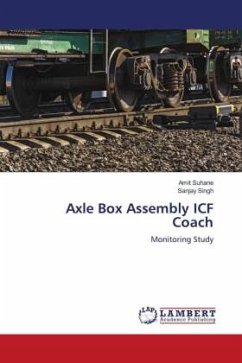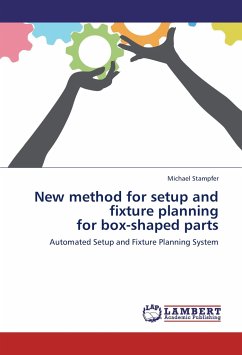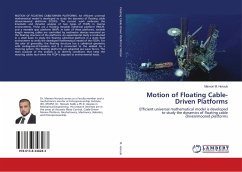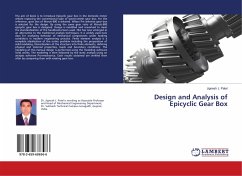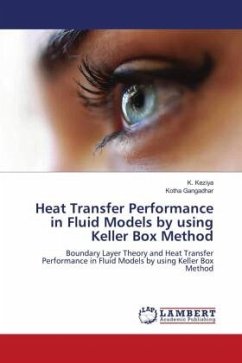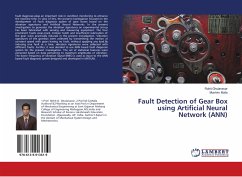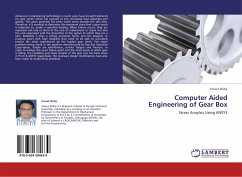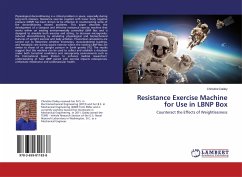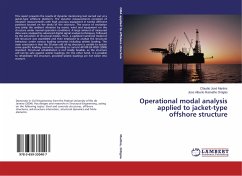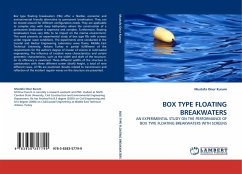
BOX TYPE FLOATING BREAKWATERS
AN EXPERIMENTAL STUDY ON THE PERFORMANCE OF BOX TYPE FLOATING BREAKWATERS WITH SCREENS
Versandkostenfrei!
Versandfertig in 6-10 Tagen
39,99 €
inkl. MwSt.

PAYBACK Punkte
20 °P sammeln!
Box type floating breakwaters (FBs) offer a flexible, economic and environmental friendly alternative to permanent breakwaters. They can be moved around for different configuration needs. They are applicable to complex sites with deep bathymetry where the construction of a permanent breakwater is expensive and complex. Furthermore, floating breakwaters have very little to no impact on the marine environment. This work presents an experimental study of box type FBs with screens under regular wave conditions. The experiments were conducted in the Coastal and Harbor Engineering Laboratory wave fl...
Box type floating breakwaters (FBs) offer a flexible, economic and environmental friendly alternative to permanent breakwaters. They can be moved around for different configuration needs. They are applicable to complex sites with deep bathymetry where the construction of a permanent breakwater is expensive and complex. Furthermore, floating breakwaters have very little to no impact on the marine environment. This work presents an experimental study of box type FBs with screens under regular wave conditions. The experiments were conducted in the Coastal and Harbor Engineering Laboratory wave flume, Middle East Technical University, Ankara Turkey in partial fulfillment of the requirements for the author's degree of master of science in civil/coastal engineering. The influence of incident wave characteristics and certain geometric characteristics, such as the width and draft of the structure, on its efficiency is examined. Three different widths of the structure in combination with three different screen (draft) height, a total of nine different cases, of FBs are examined. Results related to transmission and reflection of the incident regular waves on the structure are presented.




